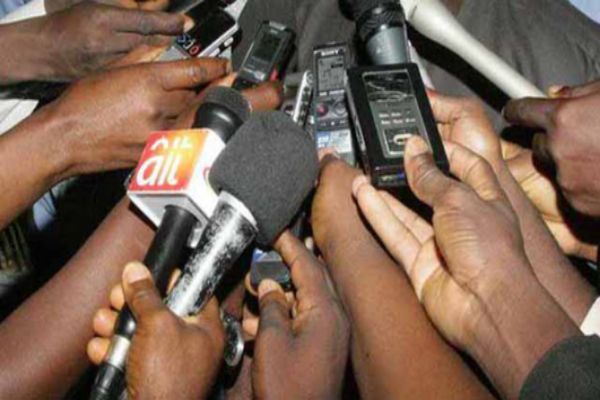By Suleiman Abdul-Azeez
In the realm of intellectual journalism, one would expect a certain level of integrity, honesty, and commitment to truth just as it is not uncommon to come across articles that are biased, sensationalized, or even downright absurd. Ikechukwu Amaechi’s recent article, “Is anyone still listening to Mahmoud Yakubu?” falls into this category. It is evident that Amaechi is merely fulfilling his paid job of smearing the image of the Independent National Electoral Commission (INEC) Chairman, Mahmoud Yakubu, to serve the dubious political agenda of his paymasters.
This response shall critically analyze Amaechi’s article, highlighting its failure in intellectual journalism and its detrimental impact on public discourse.
Public commentators play a crucial role in shaping public opinion and fostering informed discussions. However, Amaechi’s article highlights the dangers of individuals who abuse this platform to serve their own interests. By distorting facts and manipulating history, Amaechi undermines the public’s trust in the media and perpetuates a culture of misinformation.
Amaechi’s article begins with a blatant disregard for factual accuracy. He shamelessly attempts to manipulate the reader’s perception of Mahmoud Yakubu, a respected public figure, by distorting his achievements and contributions. Amaechi’s audacity to rewrite history is evident when he dismisses Yakubu’s efforts in conducting free and fair elections, conveniently ignoring the significant progress made under his leadership.
In the article, Amaechi not only shamelessly falsifies facts but also exposes the extent to which some individuals compromise the noble profession of writing. Intellectual journalism should be driven by a commitment to truth, objectivity, and the pursuit of knowledge. However, Amaechi’s piece is riddled with biased opinions, baseless claims, and a clear agenda to discredit Yakubu. This compromises the very essence of intellectual journalism, reducing it to a tool for personal gain and manipulation.
Amaechi’s article serves as a prime example of the failure of intellectual journalism. Instead of engaging in thoughtful analysis and presenting well-researched arguments, Amaechi resorts to sarcasm and mockery. This approach not only undermines the credibility of his article but also diminishes the potential for meaningful discourse and critical thinking.
Through the falsification of facts, the rewriting of history, and the compromise of the noble profession of writing, Amaechi exposes the extent to which some individuals prioritize personal gain over truth and integrity.
Amaechi’s article is riddled with sensationalism, lacking any substantial evidence to support his claims. He begins by questioning whether anyone is still listening to Yakubu, insinuating that the INEC Chairman has lost credibility. However, Amaechi fails to provide any concrete examples or instances where Yakubu’s competence has been compromised. It seems that Amaechi’s intention is to create doubt without any factual basis, a classic tactic employed by those with a hidden agenda.
The author goes on to accuse Yakubu of being the man who “staged a bloody coup against Nigeria’s democracy.” This accusation is not only baseless but also lacks any form of substantiation. Amaechi conveniently fails to provide any evidence to support this claim making it clear that his intention is to tarnish Yakubu’s reputation without any regard for the truth.
Amaechi’s lack of objectivity is evident throughout the article. He fails to acknowledge any of Yakubu’s achievements or positive contributions to the electoral process. Instead, he focuses solely on negative aspects, painting a one-sided and distorted picture. This lack of balance undermines the credibility of Amaechi’s arguments and exposes his biased agenda.
Amaechi’s choice of language further highlights his intention to smear Yakubu’s image. He repeatedly uses derogatory terms such as “lying to himself and taking Nigerians for a ride” to create a negative perception of the INEC Chairman. Such language is not only unprofessional and indecent, but also undermines the credibility of the article. Amaechi’s reliance on manipulative language reveals his attempt to influence readers’ opinions rather than presenting a fair and balanced analysis.
In conclusion, Ikechukwu Amaechi’s article, “Is anyone still listening to Mahmoud Yakubu?” is a prime example of biased journalism aimed at smearing the image of the INEC Chairman. Amaechi’s lack of evidence, baseless accusations, lack of objectivity, and manipulative language all contribute to the overall failure of his article. It is clear that Amaechi’s primary objective is to serve the dubious political agenda of his paymasters rather than providing an honest and objective analysis. As readers, it is crucial to approach such articles with skepticism and demand factual evidence before forming any judgments.
It is essential for readers to remain vigilant and discerning, ensuring that they seek out reliable sources and engage in critical thinking to combat the spread of misinformation.


